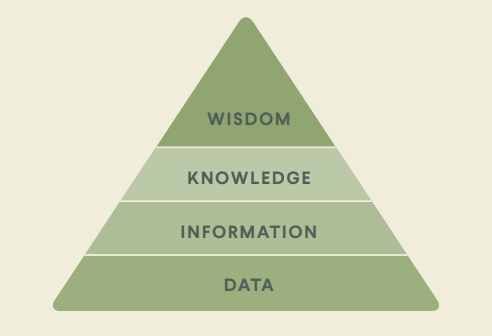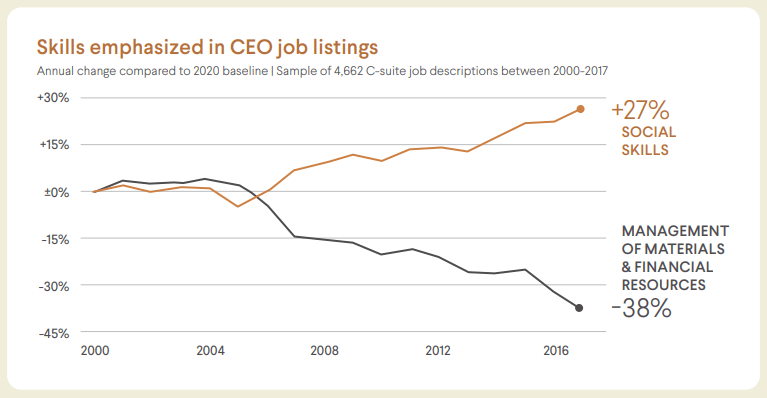🔸A wisdom worker can see beyond knowledge and numbers to understand what is truly essential.🔸
Anyone who has read the Management Consulting Page on our Website will know that I am a “fan” of Chip Conley, simply by virtue of the fact that I quote him on that web page. For those who don’t know, Chip Conley is the founder Modern Elder Academy (MEA), a New York Times bestselling author, the founder of Joie de Vivre Hospitality (the second-largest operator of boutique hotels in the U.S.), and probably most notably AIRBNB’s former Head of Global Hospitality and Strategy.
The Headline for my Post is the Title of Chip Conley’s latest E-Book. 🦉
Chip’s thinking always resonates with me, especially as I reflect on the influence of past mentors in my life. I never had a “formal Mentor” and I only recently appointed my own personal Coach, which has definitely been detrimental to my own progress and success. However, in the past there were senior figures that I admired and attempted to emulate. In addition to my personal Coach, I also follow a couple of unofficial “online mentors” like Chip Conley. These include Steven Bartlett, Simon Sinek, Gary Vaynerchuk, David JP Phillips, Vusi Thembekwayo, Jason Priestley and more.
⚠️ So … why do successful leaders value wisdom?
“A wise leader doesn’t just learn from their mistakes. They assure their mistakes (which lead to wisdom) serve a social good. Wise leaders have strong pattern recognition, adopt the curiosity of a long-life learner and have ceased needing to impress or prove themselves.“

There are several compelling insights in Chip’s E-Book, like “the 8 qualities of a wise leader (and wise teams)” but I want to focus on the following extracts:
- The Difference Between Wisdom and Knowledge
- The Emergence of the Wisdom Worker
- Age Against the Machine
- The Value of Intergenerational Collaboration
- Chip’s 14 Wisdom Principles
🦉The Difference Between Wisdom and Knowledge
“Information is knowledge which is merely acquired and stored up; wisdom is knowledge operating in the direction of powers to the better living of life.”
Philosopher and psychologist, John Dewey
Knowledge results in the understanding of a particular subject, whereas wisdom develops the discernment and reasoning ability in a person across all domains. Wisdom is the square root of something, whereas knowledge is additive. Wisdom is all about distilling the complexity of life or an organizational challenge to what’s at its core.
Knowledge results in the understanding of a particular subject, whereas wisdom develops the discernment and reasoning ability in a person across all domains. Wisdom is the square root of something, whereas knowledge is additive. Wisdom is all about distilling the complexity of life or an organizational challenge to what’s at its core.
Whereas a knowledge worker tends to use an analytical mind, a wisdom worker likely thinks holistically and systemically, utilizing more creativity and emotional intelligence. Wisdom workers are more likely to be guided by their intuitive pattern recognition. The ironic truth is: knowledge workers’ jobs are more at risk due to the on-going march of technology in the workplace. The fact is, it’s hard to replace the nuanced insight of a wise leader.
🦉The Emergence of the Wisdom Worker
Modern elders are deep listeners who willingly share their wisdom without the need for reverence. They focus on relevance, not reverence.

🦉Age Against the Machine
EQ vs. AI. Is it a battle or a partnership?
The World Economic Forum has suggested that 101 hours of retraining and upskilling is recommended for all employees over a four-year period (especially in certain job classifications) to address the tech revolution. But there is a missing conversation that centers on a whole collection of valuable organizational qualities that Artificial Intelligence can’t yet address: how to process knowledge (navigate an organizational labyrinth and get things done), human-centered pattern recognition, creativity and intuition, developing a feeling for the collective consciousness of a group, or making discerning values-based judgments. These qualities define wisdom.
As the MIT Sloan Management Review suggested recently, “Qualities that many older managers possess— being reflective, intuitive, savvy, holistic, and inclusive—are also, it’s worth noting, missing from even the most intelligent machines.”
🦉The Value of Intergenerational Collaboration
We’ve never seen a workplace like this before. Never before have we had five generations in a company. The fastest growing demographic in the American workplace in the past decade has been those who are 55 and older.
More people are “boomeranging” back to work after retiring or they’re working longer, by choice or necessity. The Department of Labor (U.S.) says that by the year 2025 the majority of Americans will have a younger boss. More older people, more younger bosses. Wise companies will figure this out.
Most companies are not prepared for today’s five-generation workplace. They’ve harnessed the value of diversity, but less than 10% of Fortune 1000 global companies have applied their Diversity, Equity and Inclusion (DEI) practices to the demographic of age. When age-diverse teams are managed wisely, members can share a wide array of skills, knowledge, and networks with one another.
No company can afford the luxury of rediscovering its own prior knowledge.
J.G. Pleasants, Vice President of R&B, Procter & Gamble (1955-69)
In most companies, institutional wisdom walks out the front door daily, through retirement, layoffs, or – most often – when experienced, older workers start to feel irrelevant. A balance sheet can’t measure the loss of these culture-bearers who have more than just the know-how, but also the know-who that often helped the company get to where it is today.

🦉Chip’s 14 Wisdom Principles
- LIFE LESSONS ARE THE RAW MATERIAL FOR FUTURE WISDOM
- KNOWLEDGE SPEAKS, BUT WISDOM LISTENS
- WISDOM IS NOT TAUGHT, IT’S SHARED
- WISDOM IS AS NATURAL TO OUR SOUL AS IS BREATHING TO OUR BODY
- WISDOM IS A SOCIAL GOOD. IT’S NOT THE SAME AS BEING SMART OR SHREWD.
- A WISE PERSON IS NATURALLY CURIOUS.
- YOU ACCUMULATE KNOWLEDGE. YOU DISTILL WISDOM.
- A WISE PERSON KNOWS HOW TO “CONNECT THE DOTS”
- A WISE PERSON MAKES EVERYONE AROUND THEM BETTER
- WISDOM IS INTERGENERATIONAL
- WISDOM CREATES AN ALCHEMICAL WHOLENESS
- A WISE PERSON FOCUSES ON THE LONG TERM
- WISDOM IS DEDICATED TO SOCIETAL ONENESS
- WISER PERSON, BETTER HUMAN
🦉CONCLUSION
I appreciate Chip Conley’s Wisdom and have enjoyed sharing a very small part of it in the Extracts that I have used from his E-Book but I strongly urge you to download and read the whole E-Book. There’s a Reading List at the end for additional “Pearls of Wisdom”.
⚠️So, as a Young Founder of a cutting-edge Tech Start-Up, why should you hire some Modern Elder Wisdom?⚠️
Whether you bring on an experienced Exec or use an experienced Consultant/Coach, there are several significant advantages.
- Experience and Expertise: Older executives bring decades of experience, often having navigated various business cycles, challenges, and market disruptions. Their knowledge can help startups avoid common pitfalls, make informed strategic decisions, and scale more effectively.
- Proven Leadership Skills: Having held leadership positions in the past, older executives are typically well-versed in managing teams, driving company culture, and making high-stakes decisions. Their leadership can provide stability and vision for a young, fast-growing company.
- Strong Networks: Over the years, older executives build extensive professional networks. These connections can be invaluable for startups in securing partnerships, funding, and business opportunities that may not be as easily accessible to younger teams.
- Crisis Management: Startups often face volatile markets and unexpected challenges. Older executives tend to have more experience with crisis management and navigating through periods of uncertainty, helping the company remain resilient.
- Mentorship and Development: Older executives can mentor younger founders and employees, offering guidance and helping develop the next generation of leaders within the startup.
- Long-term Vision: Startups are often focused on rapid growth, but older executives can help balance short-term gains with a sustainable long-term strategy, ensuring the company remains viable and competitive over time.
- Diversity of Thought: Having an age-diverse leadership team can lead to more well-rounded decision-making. Older executives bring a different perspective and approach that complements the energy and innovation of younger team members.
By leveraging the strengths of older executives, tech startups can benefit from a blend of innovation, stability, and experience to drive sustained growth.



